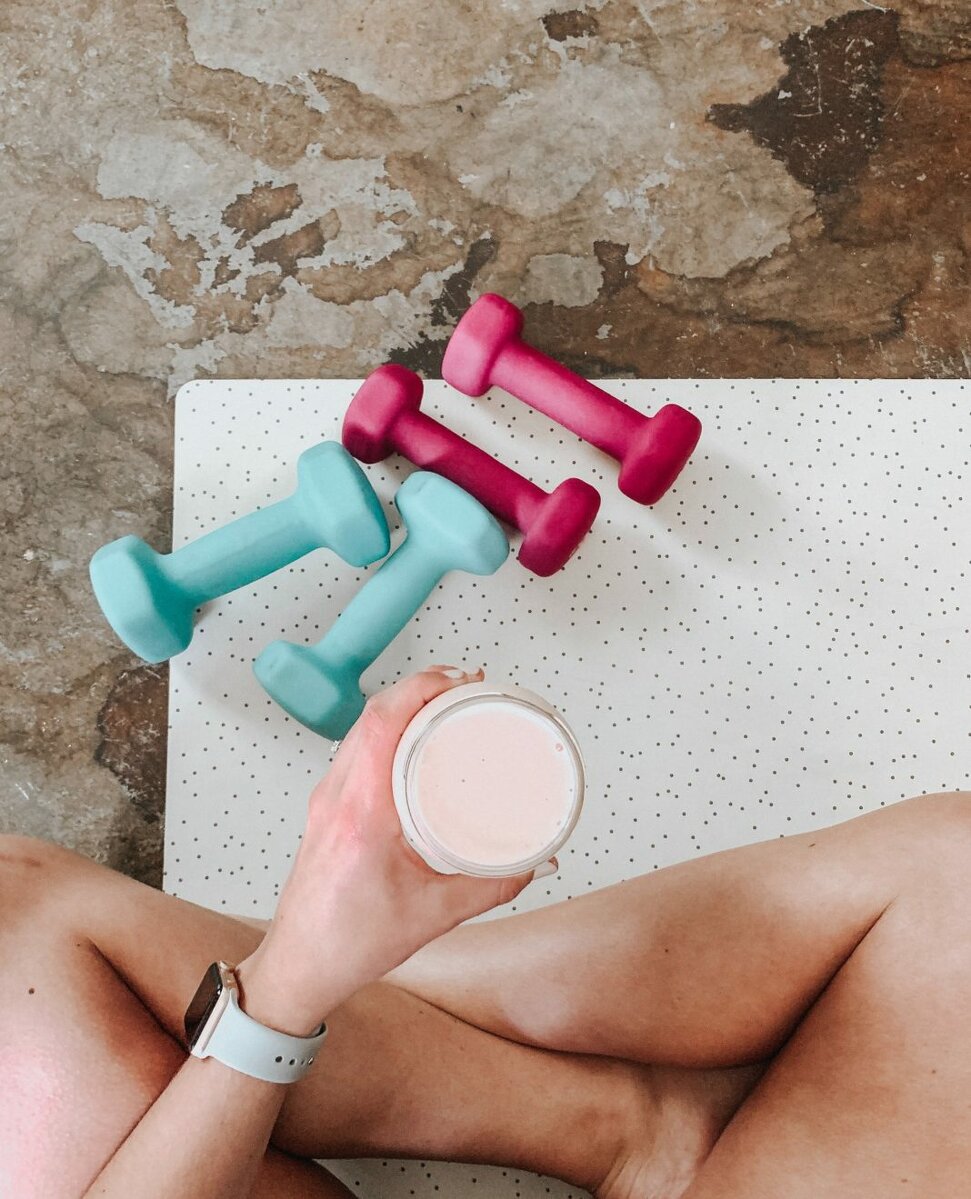Brief • 3 min Read

A study conducted by The Harris Poll on behalf of Ad Age found that a notable portion of U.S. adults have taken steps to improve their mental and physical health in the past six months. That said, age and household income are significant factors in the decision to purchase or use health-focused products.
Physical Health
Two-in-five adults have considered buying a home fitness product in the past six months, and a third have actually purchased a home fitness product in that timeframe. Younger adults and wealthier adults purchase home fitness products most often.
A greater number of younger adults are purchasing home fitness products than their older counterparts. Fifty-three percent of Gen Zers and 44% of Millennials report that they have purchased a home fitness product over the past 6 months (compared to 31% of Gen Xers and 17% of Boomers).
Unsurprisingly, people with greater household incomes report purchasing home fitness products at a higher rate than those with lower household incomes. Forty-three percent of those with a household income of over $100,000 report that they have bought a home fitness product over the past six months, compared to just 23% of those with a household income of lower than $50,000 and to 30% of those with a household income of between $50,000 and $75,000. This likely points to home fitness products not being seen as essential purchases by Americans with restricted or limited budgets.
Additionally, younger adults over-index on considering purchasing home fitness products. Three out of five Gen Zers (58%) and Millennials (60%) report that they have considered purchasing a home fitness product in the last 6 months, compared to only 44% of Gen Xers and 24% of Boomers.
Those with higher household incomes are also considering buying home fitness products more frequently than those with lower household incomes. Half (50%) of all adults with a household income of over $100,000 have considered buying a home fitness product in the past six months, compared to just 38% of those whose household income is below $50,000 and 41% of those whose household income is between $50,000 and $75,000.
Half (51%) of all adults have used a home fitness product in the past six months.
Six-in-ten (60%) Gen Zers and 55% of Millennials report using a home fitness product in the past six months, compared to just 35% of Boomers. A similar number (62%) of those whose household income is above $100,000 have used a home fitness product in the past six months, compared to just 40% of those whose household income is less than $50,000.
Mental Health
While two-in-ten adults have used a mental health counseling app, over a quarter have considered downloading an app to improve their mental health. Outside of feelings of anxiety and depression, the most cited reasons for downloading a mental health app centered around financial and relational stressors.
Two-in-ten (17%) adults have used a mental health counseling app, like Talkspace, BetterHelp, or Larkr, in the past six months while 27% of adults have considered downloading such an app in the past six months.
Younger adults over-index on mental health counseling app usage. Twenty-eight percent of Gen Zers and 30% of Millennials report using a mental health counseling app in the past six months. Additionally, forty-two percent of Gen Zers and half (47%) of Millennials report that they have considered using a mental health counseling app in the past six months. African Americans also over-index on mental health counseling app usage, with a quarter (25%) reporting that they have used such an app in the past six months (compared to just 13% of White people).
A quarter (26%) of all adults have used a wellness app, like Headspace, Noom, or Apple Fitness+, in the past six months while 37% have considered downloading the app in the same timeframe.
Of those that have used a mental health app, two-thirds (67%) use such an app in addition to a traditional mental healthcare plan while 58% use such an app to replace a traditional mental healthcare plan.
Unsurprisingly, the most popular reasons for using mental health counseling apps centered around experiencing anxiety and depression. Outside of feeling anxiety (57%) and depression (44%), the most popular reasons for using a mental health counseling app were
- stress or problems related to a change in financial situation (39%),
- work-related stress or problems (35%),
- relationship-related stress or problems (33%),
- the recommendation of a friend or family member (31%), and
- a financial situation that does not allow one to afford in-person therapy (24%).
Eating Right
Most adults view buying healthy food as important, and two-in three will pay more for products that advertise their health benefits. Younger adults over-index on purchasing health-focused products.
Four-in-five (79%) adults view buying healthy food as important to their grocery buying habits.
Two-in-three (63%) U.S. adults report that they enjoy purchasing health focused (e.g., organic, low-fat, non-GMO) products. A similar number (66%) of U.S. adults agree that they are more likely to purchase products that advertise their health and wellness benefits. Millennials are more likely to do this than their older counterparts, with 70% reporting that they are more likely to purchase from brands that advertise their wellness benefits (compared to just 58% of Boomers).
Most (58%) adults agree that they will pay more for a health-focused product over a product that is not health focused. This number climbs for younger adults with 74% of Gen Zers and 66% of Millennials reporting that they will pay more for a health-focused product over one that is not health-focused (compared to 57% of Gen Xers and 47% of Boomers).
Methodology
This survey was conducted online by The Harris Poll on behalf of Ad Age during January 21-24, 2022, among 1,092 U.S. adults ages 18 and older. This online survey is not based on a probability sample, and therefore no estimate of theoretical sampling error can be calculated. Figures for age, sex, race/ethnicity, education, region, and household income were weighted where necessary to bring them into line with their actual proportions in the U.S. population. Propensity score weighting was used to adjust for respondents’ propensity to be online. For more information, please contact Madelyn Franz or Andrew Laningham.
Subscribe for more Insights
Subscribe to our newsletter for the latest trends in business, politics, culture, and more.
Download the Data
Get the full data tabs for this survey conducted online within the United States by The Harris Poll on behalf of Ad Age between January 21-24, 2022, among 1,092 U.S. adults ages 18 and older.
Download
Subscribe for more Insights
Subscribe to our newsletter for the latest trends in business, politics, culture, and more.
Download the Data
Get the full data tabs for this survey conducted online within the United States by The Harris Poll on behalf of Ad Age between January 21-24, 2022, among 1,092 U.S. adults ages 18 and older.
DownloadRelated Content








